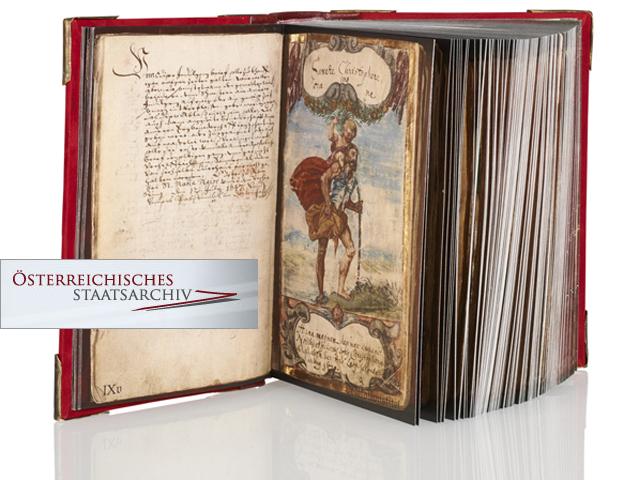
Principle book of the Brotherhood
St. Christoph am Arlberg
Manuscript Weiss 242,
State Archives Vienna
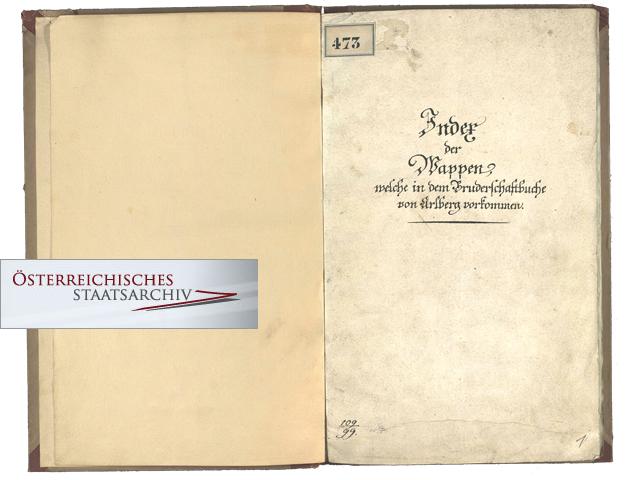
Index of the coats of arms
included in the Brotherhood book
from the Arlberg,
as kept in Manuscript Weiss 242,
State Archives Vienna
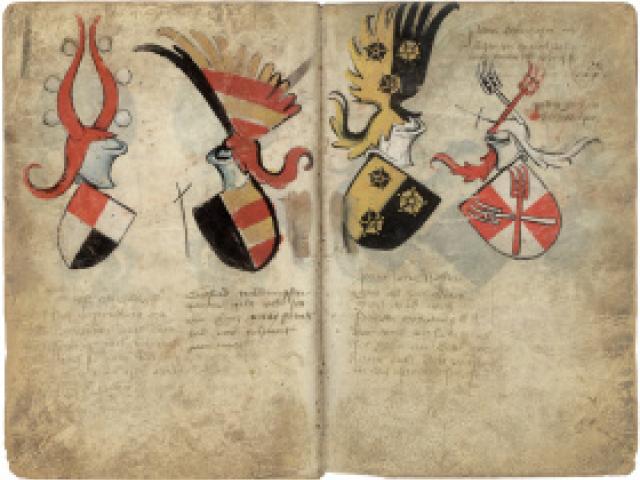
Book of messengers of the
Brotherhood St. Christoph am Arlberg.
Owner: Royal Bavarian Order of
Knights of St. George,
Bavarian Main State Archives...
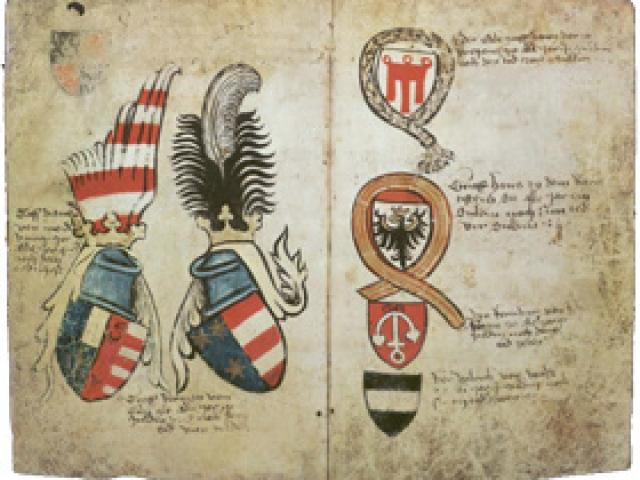
Tyrolean Manuscript „Codex Figdor“
Book of messengers of the
Brotherhood St. Christoph am Arlberg.
Tyrolean Manuscript „Codex Figdor“
Tyrolean State Archives, Innsbruck
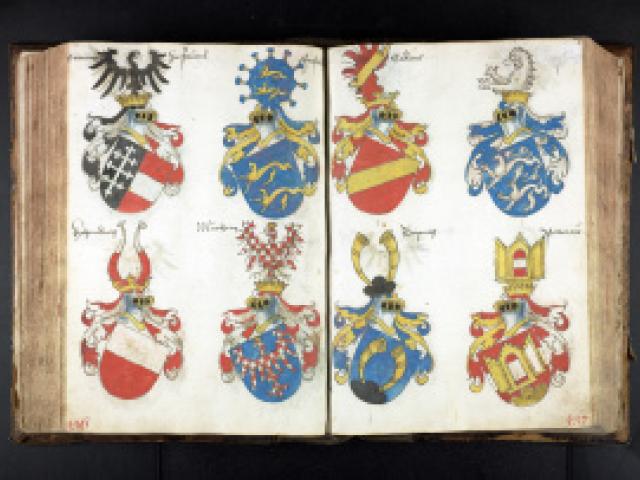
Virgil Raber, Book of coats of arms
of the Arlberg Brotherhood 1548
220 Klassik Weimar Foundation
Duchess Anna Amalia Library
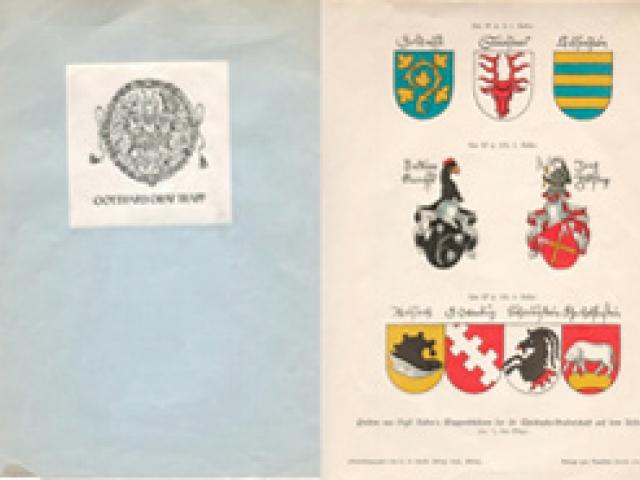
Index of the coats of arms,
which are included in the Book
of Messengers of the Arlberg Brotherhood.
Special print „Der Deutsche Herold“,
number 8/1909
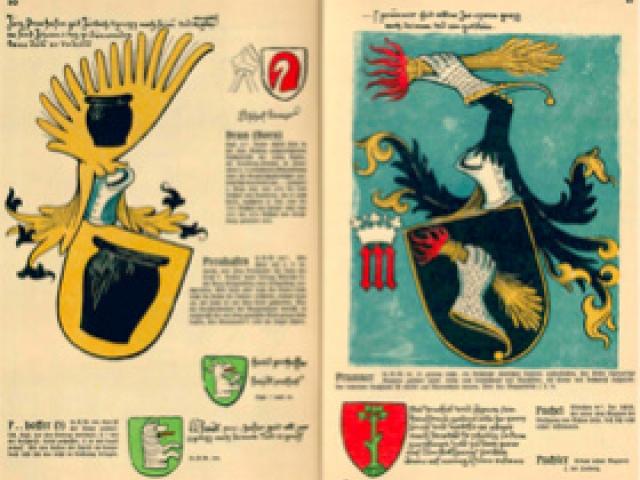
The coat of arms books
of German middle ages.
#Edited by Prof. Otto Hupp.
Volume 1/Berlin 1937-1939
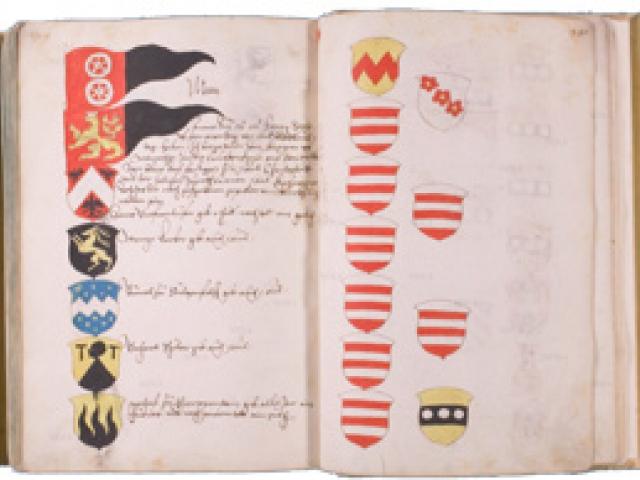
Extract from the parchment
manuscript „ARLPERG“, HS 328,
Lower Austria State Archives,
St. Pölten
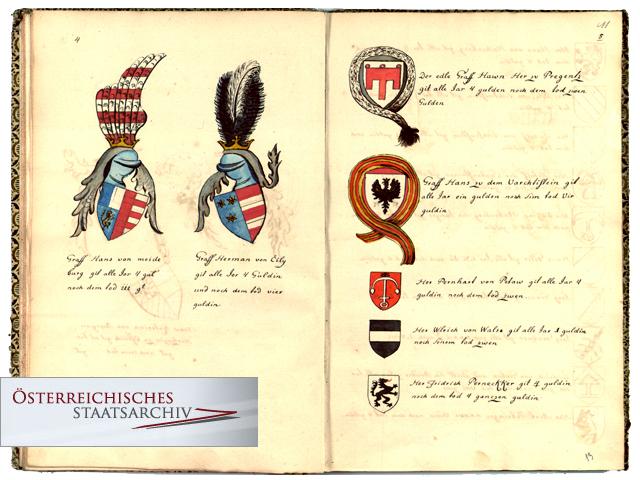
Copy of the Brotherhood book
of St. Christoph am Arlberg.
Manuscript Weiss 50/12,
State Archives, Vienna
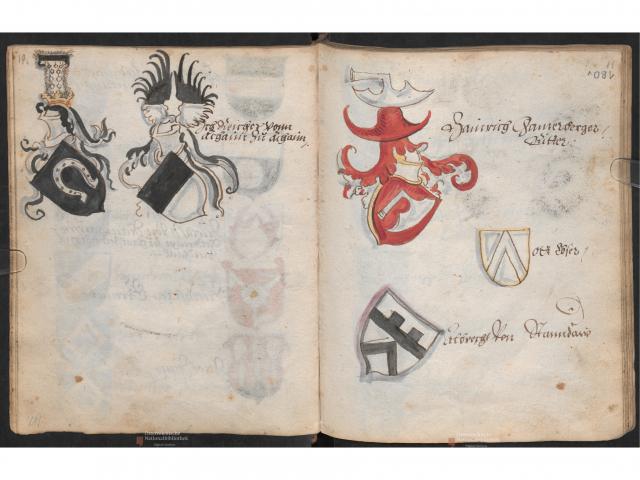
Faximile from year 1579 of
Tiroler Hand writing "Codex Figdor".
Part (fol. 133v bis 188v) HS cod. 7357,
National Library of Austria, Vienna
Heinrich Findelkind was full of ideas, and collected the money he needed to build the hospice and chapel from rich sponsors. He travelled with his companions throughout Europe, equipped with his „book of messengers“(or armorial). The donors could have their family coat of arms entered into these books, together with the amount of their yearly donations to the Brotherhood.
These “books of messengers” of the Brotherhood St. Christoph are a unique documentation of coats of arms from the 14th and 15th centuries, and are today an priceless treasure.
There were at least five original manuscripts, of which three are still in existence: the principal book of the Brotherhood, known as the Viennese Manuscript, is kept in the State Archives in Vienna; the Codex Figdor, or Tyrolean Manuscript, is kept in the Tyrolean State Archives in Innsbruck; the Munich Manuscript is kept in the archives of the Order of the Knights of St. George in Munich. A number of copies of the original manuscripts (books of messengers) were made over the centuries. These existing manuscripts also contain coats of arms and entries of donations copied from lost books of messengers. It is impossible to say how many original manuscripts actually existed. In 1548 Virgil Raber from Sterzing saw five books of messengers in the old Hospiz in St. Christoph am Arlberg and reported that they were in a desolate condition. As the Codex Figdor in the Tyrolean State Archives in Innsbruck is still today in a good state of preservation, it cannot have been one of the five books of messengers seen by Raber.
These magnificent decorated coats of arms, some with gold leaf, bound into manuscripts with leather and velvet and decorated with heavy metal studs, are a real feast for the eyes, and can normally only been viewed in Vienna, Innsbruck and Munich with special permission.
By means of modern reproduction, programming and communication technology, it is now possible to present the books of messengers of the Brotherhood St. Christoph via Internet, in all their detail and enlargement. So now anyone interested can now study the history of the Brotherhood via the bibliophilic treasures kept in the archives. Perhaps it is possible also to find ancestors or to find a personal link to actual events. In any case, it is a real experience to browse through more than 630 years of history, to admire the coats of arms and original texts and to read the professional expertise and translations.
Take a look!
Short guidelines to using the EXAwebpaper-Interface:
- Left-click on mouse: to enlarge the picture
- Right-click on mouse: to call up the context menu with possible choice of more menu items.
- The last menu item marks/unmarks the ActionPoints. The ActionPoints should always be highlighted.
- Hold down the left mouse button: to move the selected part of the image with the cursor into the viewing picture in right upper corner
- Mouse wheel (if present): to scroll the image selection at reader’s speed